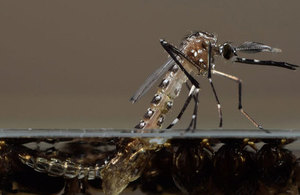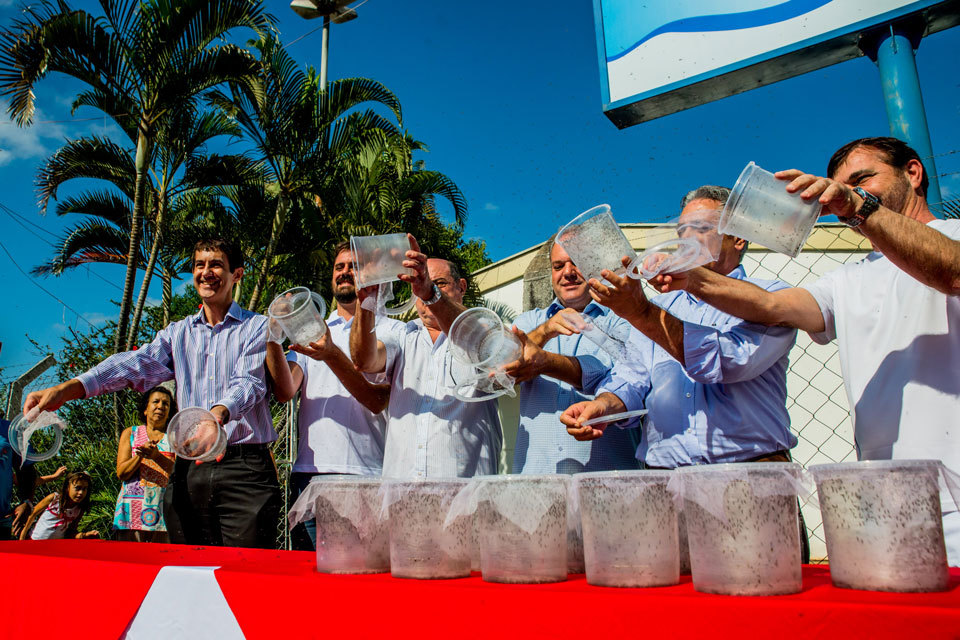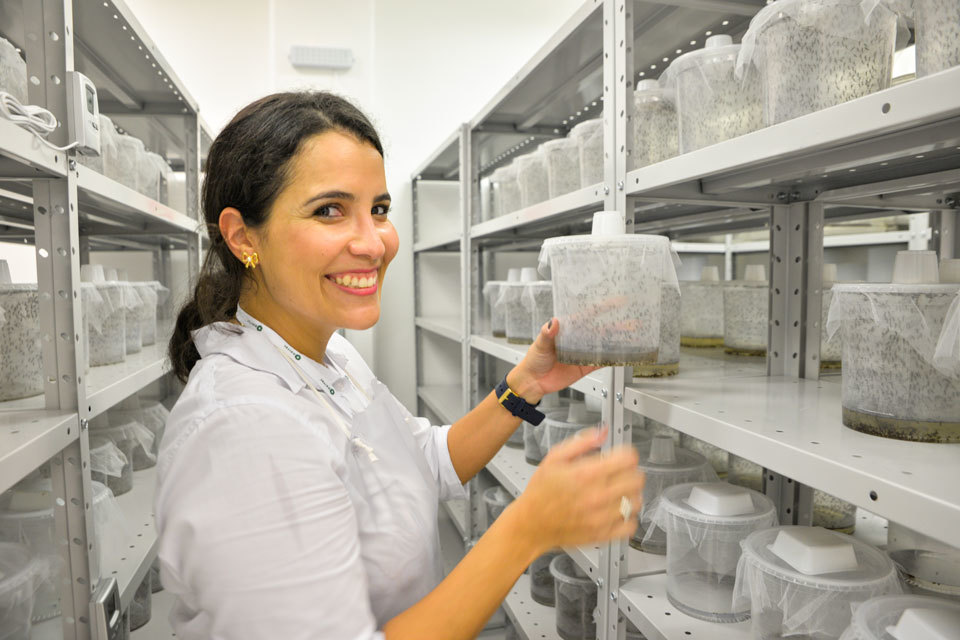Oxitec: business accelerates its fight against dangerous viruses
A pioneer in biological control of insects is accelerating its fight against mosquito-borne virus after being acquired in $150 million deal.

An emerging pupae of Aedes aegypti
A pioneering business in biological control of insects is set to accelerate its development after being acquired by a major US corporation and then finding itself in the vanguard of efforts to counter the Zika virus.
Oxfordshire-based Oxitec has developed a genetically engineered version of the Aedes aegypti mosquito. The wild mosquito is known to transmit dengue fever, yellow fever and the viral disease, chikungunya.
It also transmits the emerging Zika virus, which is being linked to an increase in babies born with microcephaly in countries such as Brazil.
When the Oxitec male mosquito is released into the environment, it suppresses the local population of Aedes aegypti. It mates with female mosquitos but the offspring do not survive.
Oxitec chief executive Hadyn Parry said:
We could protect millions of people not only from dengue fever and chikungunya but also from Zika. There will also be other future viruses spread by this mosquito.
We have a product we have been testing and trialling for many years that’s now ready. We have been through the approval process with the World Health Organisation Vector Control Advisory Group and in Brazil.

The first release of Oxitec's modified mosquito in Piracicaba, Brazil.
Oxitec opens mosquito production facility in Brazil
Oxitec announced in January that it was opening a new mosquito production facility in Piracicaba, Brazil, that will have the capacity to protect 300,000 people in the city.
The US Intrexon Corporation acquired Oxitec last year in a $160 million deal. The acquisition by the leading synthetic biology business means Oxitec can accelerate its development plans.
Hadyn added:
Intrexon have a lot of science, a lot of financial muscle and huge ambition. We have fitted together well.
They have said they want us to stay the way we are but they are going to help us a great deal in terms of technology and finance.
Oxitec realised it needed to seek a strong partner because of the complex regulation in its field, long development times and its status as the pioneer in genetically engineering insects.
It meant that a company already invested in this area was better able to understand the challenges than private investors were.

Oxitec's mosquito production facility in Brazil.
Business looks to accelerate development plans
Oxitec is now looking to accelerate its development plans and in particular to take its technology to many different countries simultaneously. It also wants to expand into agriculture where it sees a large market for its technology.
Oxitec will remain at its headquarters in Milton Park, where it will also continue its research and development work.
Oxitec’s work has been supported by Innovate UK through a number of projects over the last five years.
Hadyn said:
It’s not just the finance you get to support a project, it’s the validation that is so important.
If you are a small company and get an Innovate UK grant, people know that due diligence has been done on the technology and on the business plan. It helps you to get finance from private investors.
Updates to this page
-
First published.